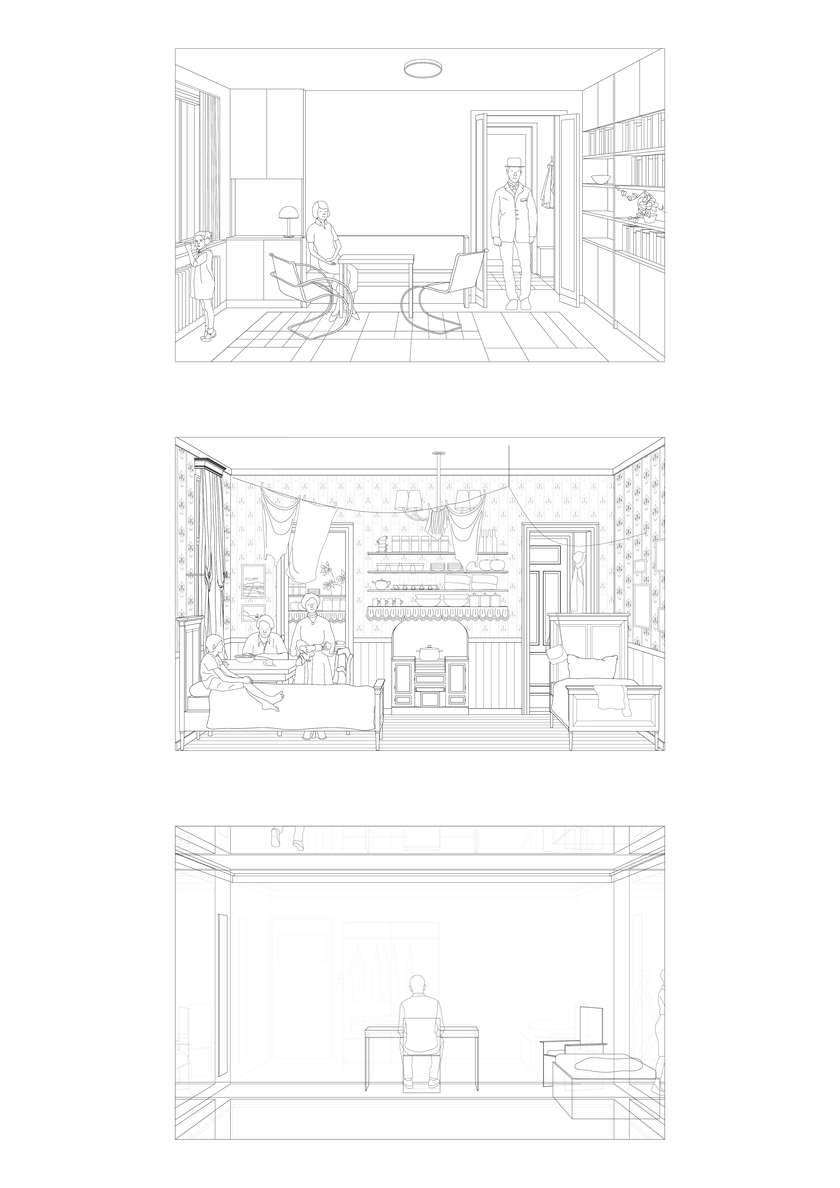Idea by
Jana Culek
Studio Fabula
Call for ideas 2021
Revisiting Utopia
Revisiting Utopia
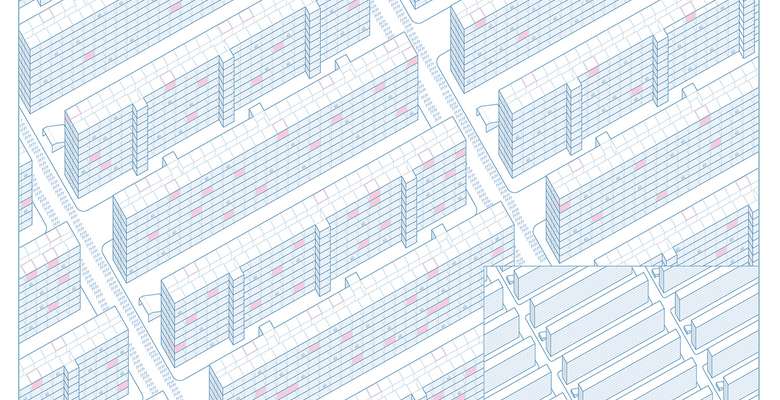
- Systemic changes
Taking note from cultural landscapes of their time, utopian projects contain multitudes of layers which weave together fact and fiction, reality and intention, past and future, good and bad. The fictional nature of utopia allows us to propose radical methods for testing possible futures without immediate consequences to our present. Today utopias still retain a strong presence in literature, but utopian architecture projects are mostly non-existent. By focusing on projects which conform to the needs of the market, architecture has lost some of its critical importance. In order to regain it, it is important to re-examine utopias and investigate the methods they use in order to reflect on our society and propose alternatives for our condition. In a time when social, political, financial, ecological, health and architectural crises are by no means few and far between, utopia as a method can be employed as a means of evaluating our current state and a tool for envisioning a better future.
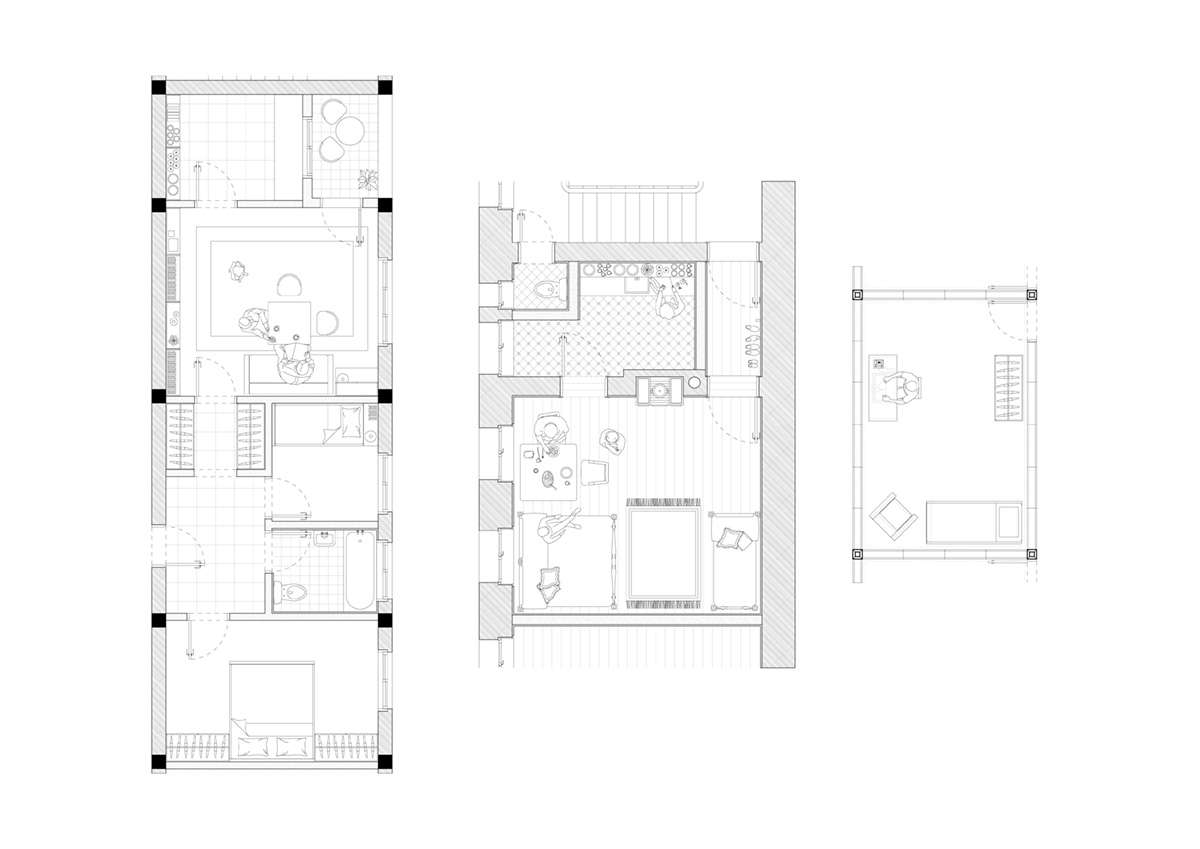
Today’s world is too complex to respond to it through a totalizing vision. So instead creating just another overview of utopian visions, the project looks into what utopias are made of – with what types of elements these fictional worlds were constructed, how these new elements related or responded to the “real” historical ones, what were the most common spatial and social changes proposed?
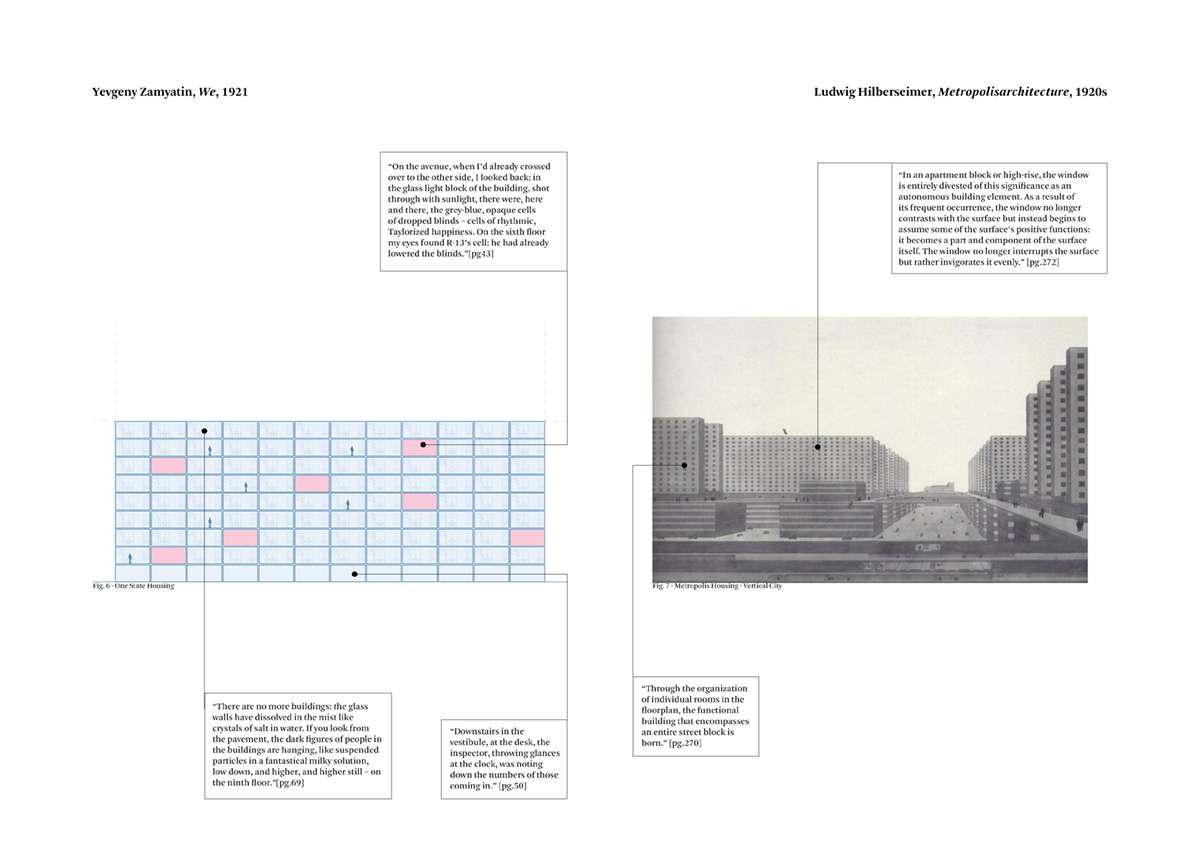
The project investigates utopian building blocks – their tools, methods, social and spatial forms – in order to employ them creating visionary and speculative but critical architectural projects. In order to move past the boundaries of the architectural discipline to see things from a wider cultural perspective, the research focuses not only on architectural but also literary utopias.
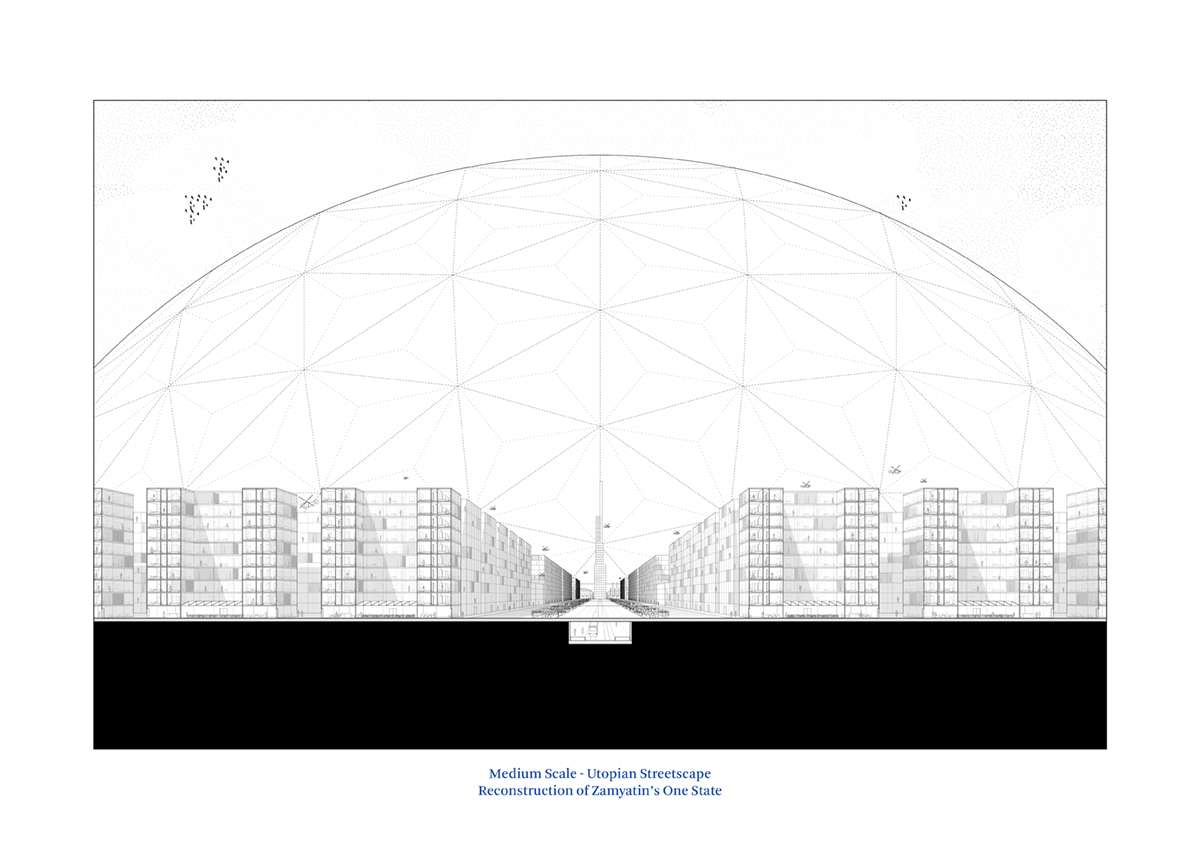
Comparatively examining utopian narratives from both fields, the project questions weather some of the proposed utopian ideas represented intentions and tendencies which were common across all cultural fields and were somehow universal and universally human.
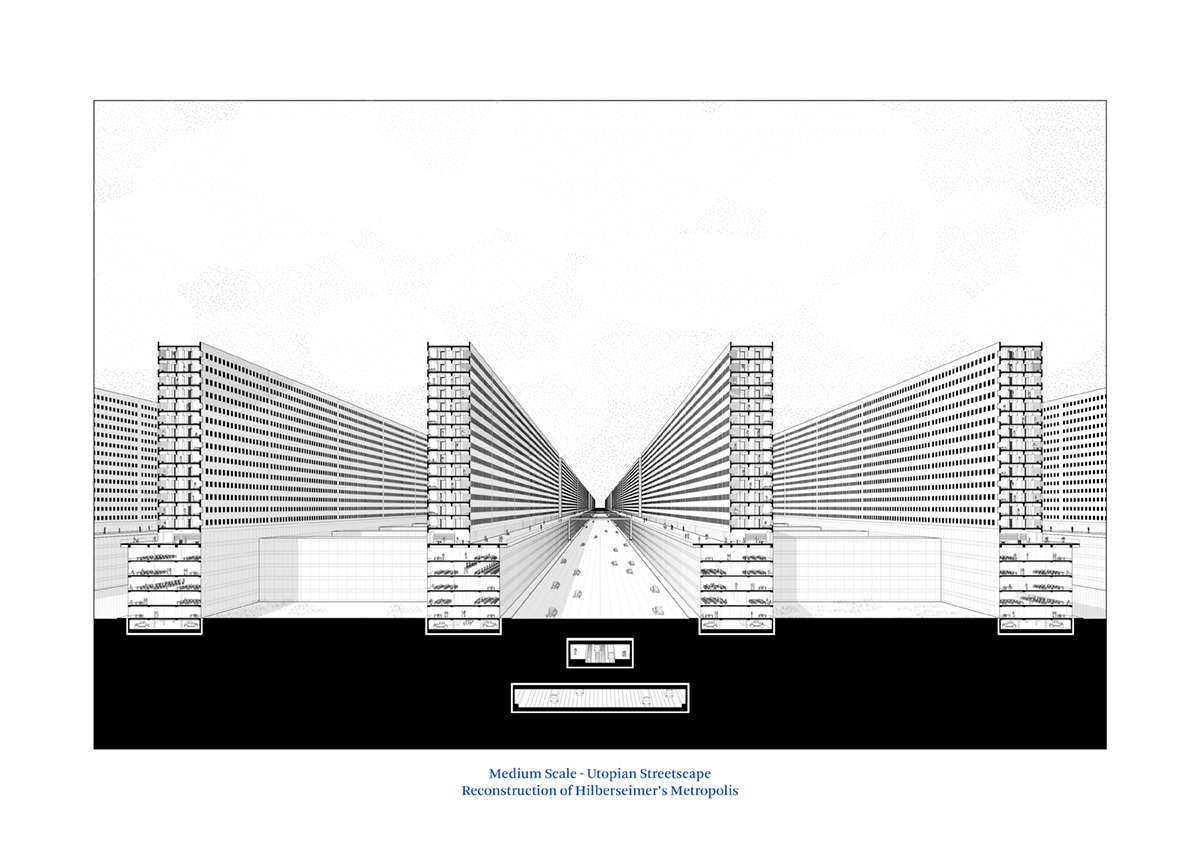
From the scale of the inhabitants to the scale of the city (or even the planet) the project discovers which new forms of living, interacting, inhabiting or building have been proposed and in response to which historical events or inventions. Reconstructing utopian elements through text and drawing on multiple scale, the project creates a collection of forward-thinking ideas which have reoccurred throughout our history.
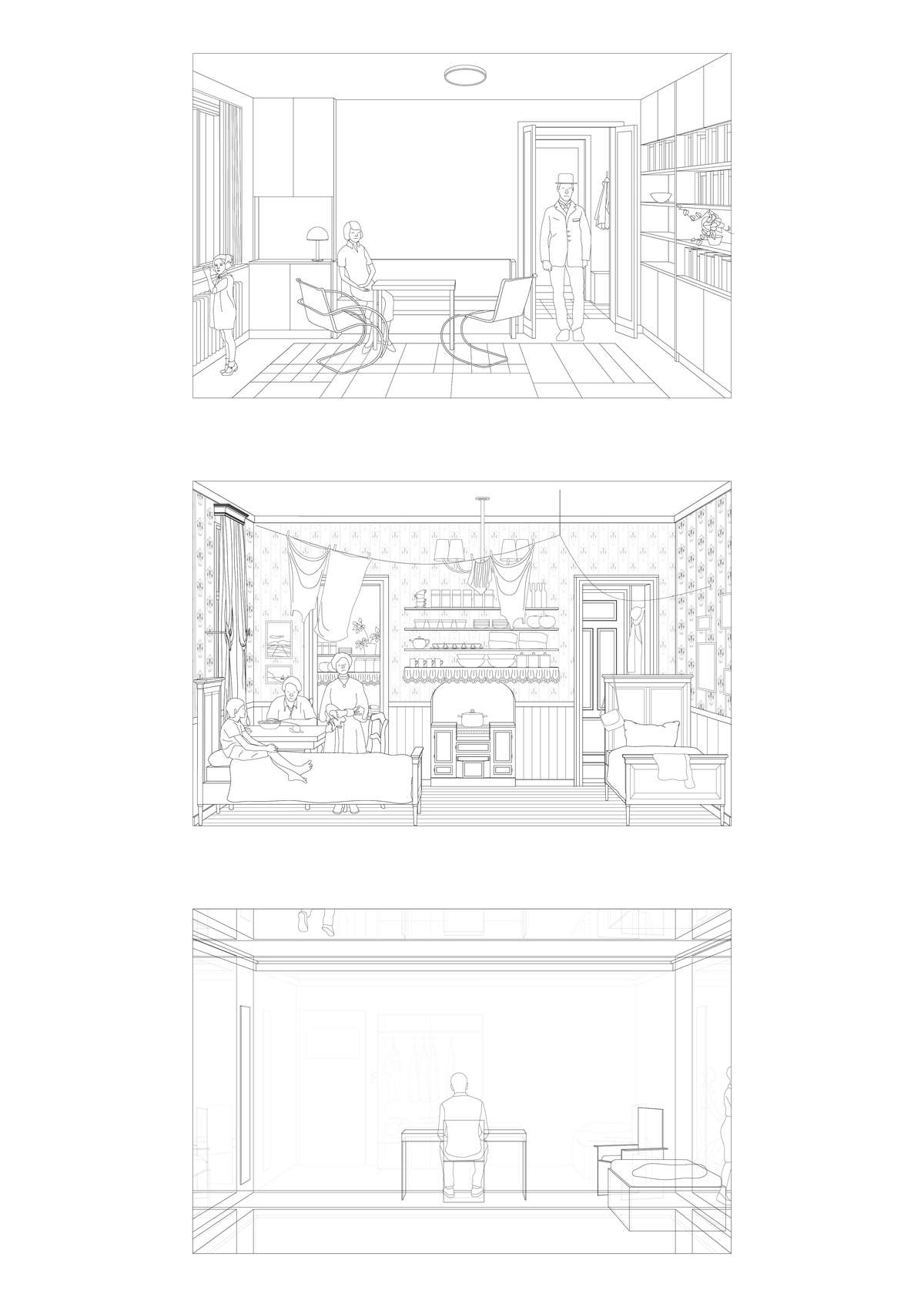
Revisiting Utopia
Revisiting Utopia

- Systemic changes
Taking note from cultural landscapes of their time, utopian projects contain multitudes of layers which weave together fact and fiction, reality and intention, past and future, good and bad. The fictional nature of utopia allows us to propose radical methods for testing possible futures without immediate consequences to our present. Today utopias still retain a strong presence in literature, but utopian architecture projects are mostly non-existent. By focusing on projects which conform to the needs of the market, architecture has lost some of its critical importance. In order to regain it, it is important to re-examine utopias and investigate the methods they use in order to reflect on our society and propose alternatives for our condition. In a time when social, political, financial, ecological, health and architectural crises are by no means few and far between, utopia as a method can be employed as a means of evaluating our current state and a tool for envisioning a better future.
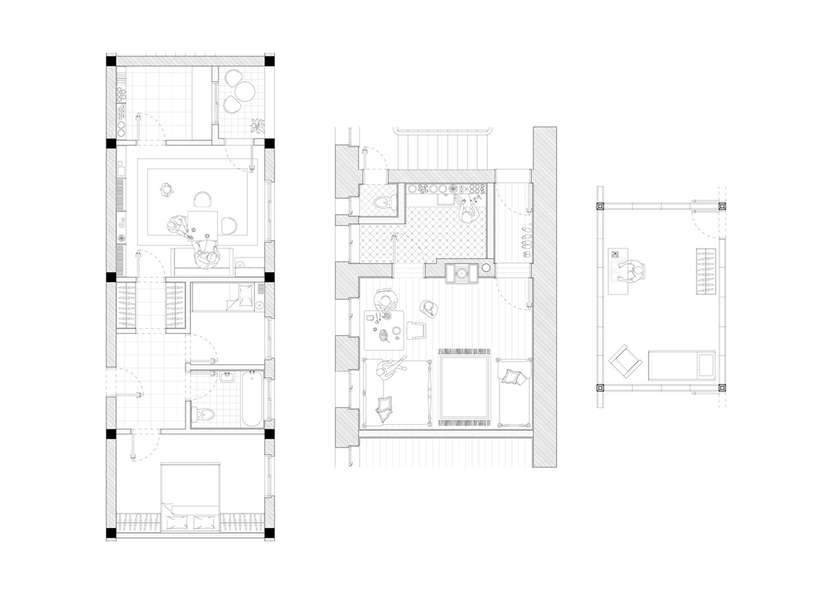
Today’s world is too complex to respond to it through a totalizing vision. So instead creating just another overview of utopian visions, the project looks into what utopias are made of – with what types of elements these fictional worlds were constructed, how these new elements related or responded to the “real” historical ones, what were the most common spatial and social changes proposed?
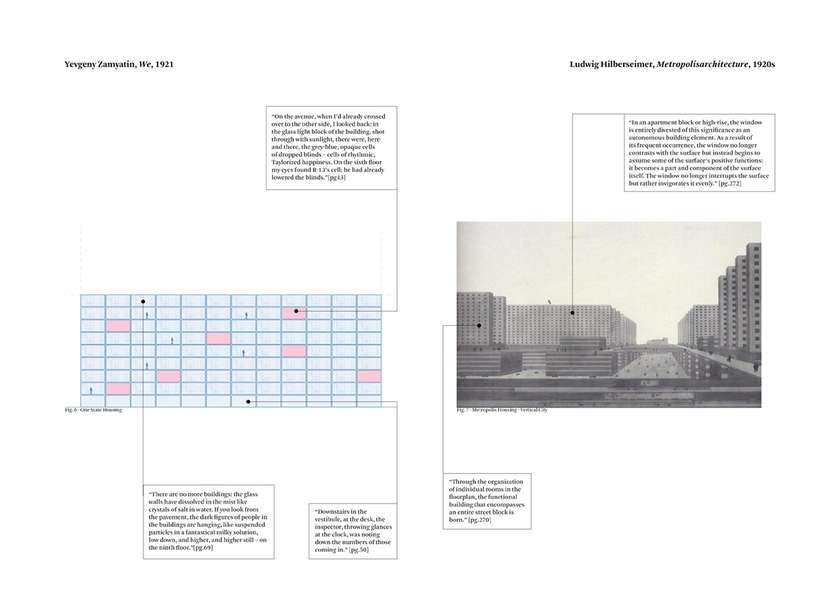
The project investigates utopian building blocks – their tools, methods, social and spatial forms – in order to employ them creating visionary and speculative but critical architectural projects. In order to move past the boundaries of the architectural discipline to see things from a wider cultural perspective, the research focuses not only on architectural but also literary utopias.
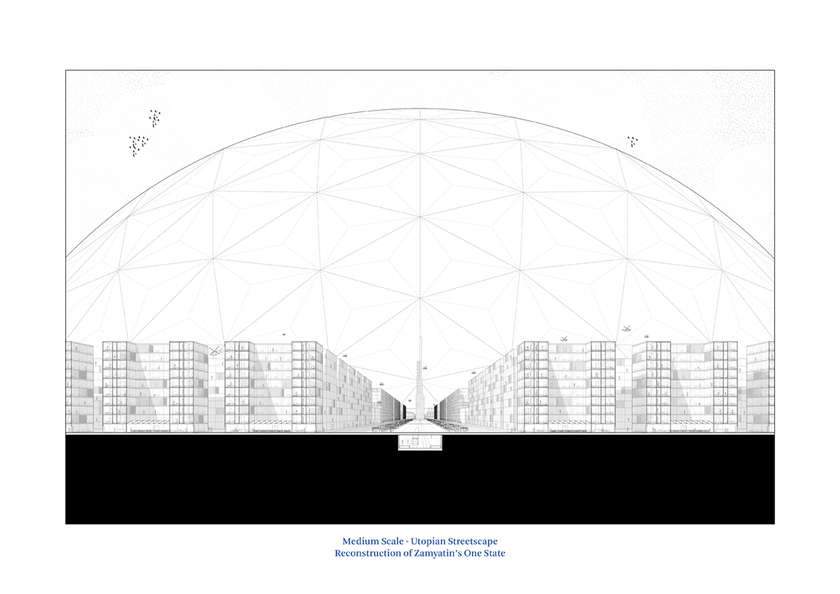
Comparatively examining utopian narratives from both fields, the project questions weather some of the proposed utopian ideas represented intentions and tendencies which were common across all cultural fields and were somehow universal and universally human.
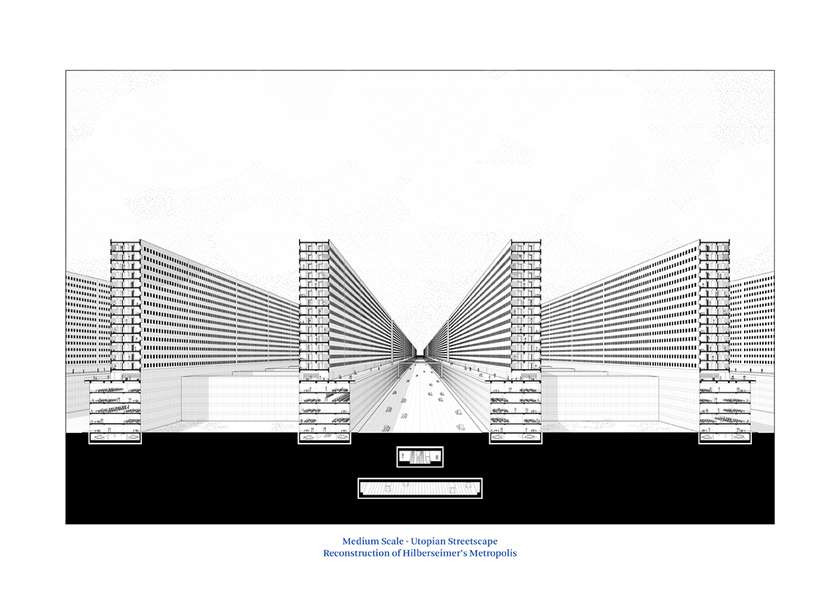
From the scale of the inhabitants to the scale of the city (or even the planet) the project discovers which new forms of living, interacting, inhabiting or building have been proposed and in response to which historical events or inventions. Reconstructing utopian elements through text and drawing on multiple scale, the project creates a collection of forward-thinking ideas which have reoccurred throughout our history.
